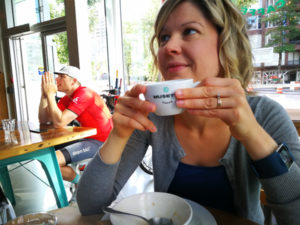Coffee and T1D, what are your thoughts?
I don’t drink coffee, but I know that a lot of you do. Personally, I am a tea (all the caffeinated tea, please 🙂 ) drinker. I have tried incredibly hard to become a coffee drinker in my time (that caffeine burst is a huge driver), but unfortunately, I have failed all the times I tried.
The topic of coffee and T1D, though, is a bit polarizing. So, I’m curious.
If you’re a coffee drinker and have type-1 diabetes, what are your thoughts?
The science of coffee on blood sugars
If you do a quick Google search on coffee and T1D, you’ll come up with several posts on how coffee can increase blood sugars – especially first thing in the morning, when combined with other risk factors such as dawn phenomenon.
But if you dig a little deeper, you’ll find that the research is actually quite conflicting. Varying studies will show that coffee:
- Increases insulin resistance
- Increases insulin sensitivity
- Has absolutely no effect on blood sugars
Well, that’s not very helpful is it?
So what’s the deal?

Caffeine struggles
Well, if we’re looking solely at insulin resistance, it’s not necessarily the coffee per se, but rather the caffeine.
Caffeine triggers the release of adrenaline and cortisol in our system. These hormones are a part of our fight or flight mechanism. When fight or flight is triggered, we are essentially in survival mode. And our body believes that we’ve got a hungry bear in front of us, not a steaming cup of Joe, and is utilizing all energy stores to get the heck out of dodge. And because of that, our liver starts releasing stored glucose to survive the bear.
Fu-un!
Generally speaking, for all people, it’s not recommended to consume more than 400 mg caffeine per day, which is about 4 cups of coffee, or – if you’re like me and prefer tea – it’s about 8 cups of green tea or 10 cups of black tea per day.
But, is that an appropriate recommendation for people with T1D too?
It’s hard to say.
We don’t have good enough research to say one way or another how much caffeine a person with T1D should be consuming. And that’s mostly because every body is different and no T1D is the same.
Friends, it’s all about trial and error. Figuring out what works for you and what doesn’t.
I’ll come back to that in a moment…

Caffeine positives
What about the insulin sensitivity argument?
Well, some studies show that caffeine can actually have a positive impact on insulin sensitivity. The anti-oxidant and anti-inflammatory effects of caffeine may actually improve glucose metabolism over time. In fact, for people without diabetes, drinking coffee regularly may reduce risk of developing type-2 diabetes!!
Not bad caffeine.
And in sport, the effects of caffeine may actually benefit our goals of reducing low blood sugars. A 2015 study with T1D participants showed that taking caffeine supplements prior to moderate aerobic exercise slowed down the decrease of blood glucose during exercise.
And you know what that means, right?
The exercise doesn’t have to stop to treat low blood sugars!!!
However, the same study did have a greater increase in blood sugars later in the evening post exercise, which may potentially be the result of lasting caffeine effects.

To caffeinate or not
So, how do we conclude this?
As always, the thing to consider here is that all of these recommendations are generalizations. Many of the studies done on this topic are limited, have small sample sizes, uncontrolled variables.
Trial and error is your best bet in determining if and how caffeine effects you.
Now, if you’ll please excuse me, I need to go and have my 2nd (maybe 3rd) cup of matcha for the day 😀

